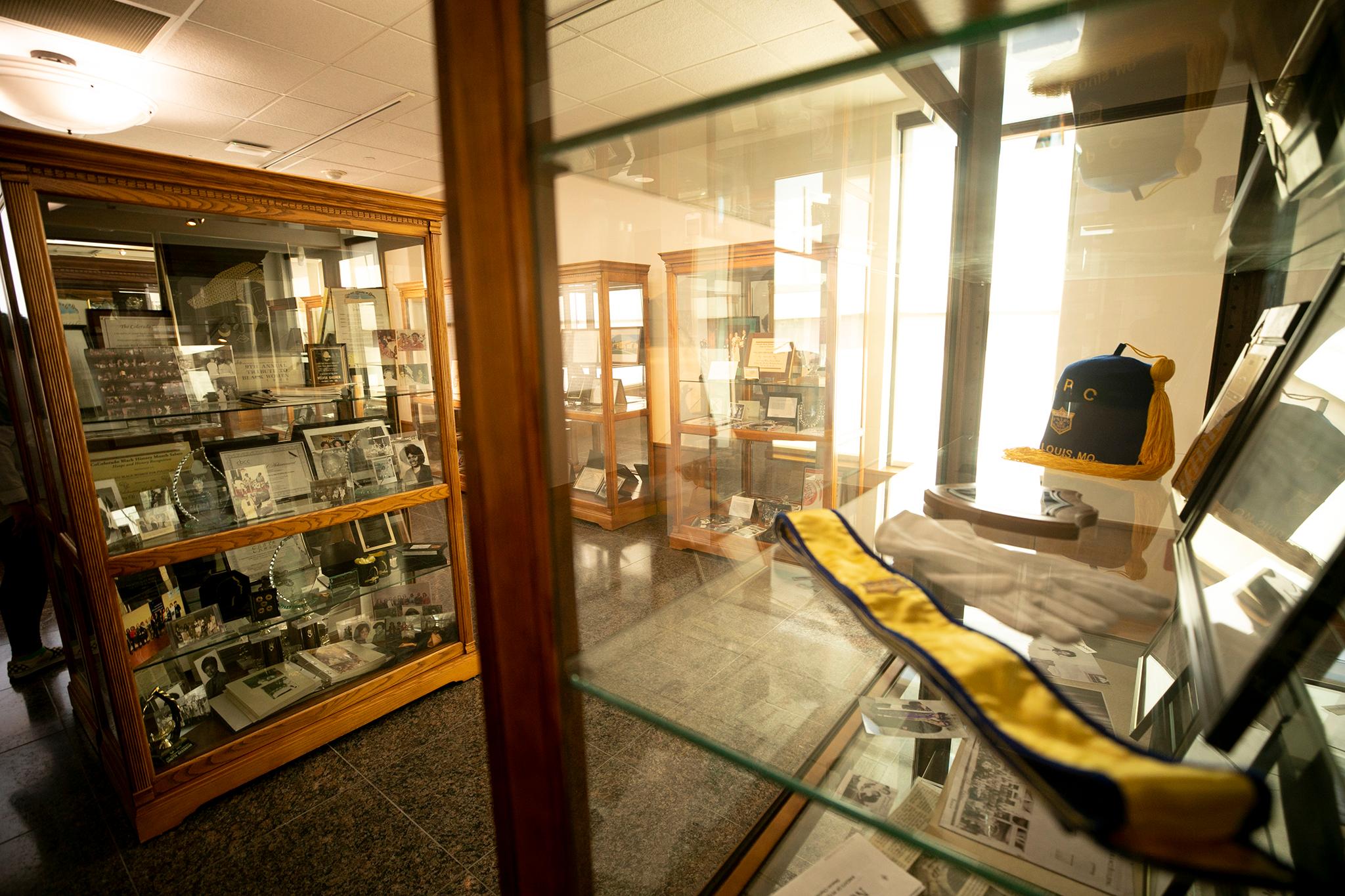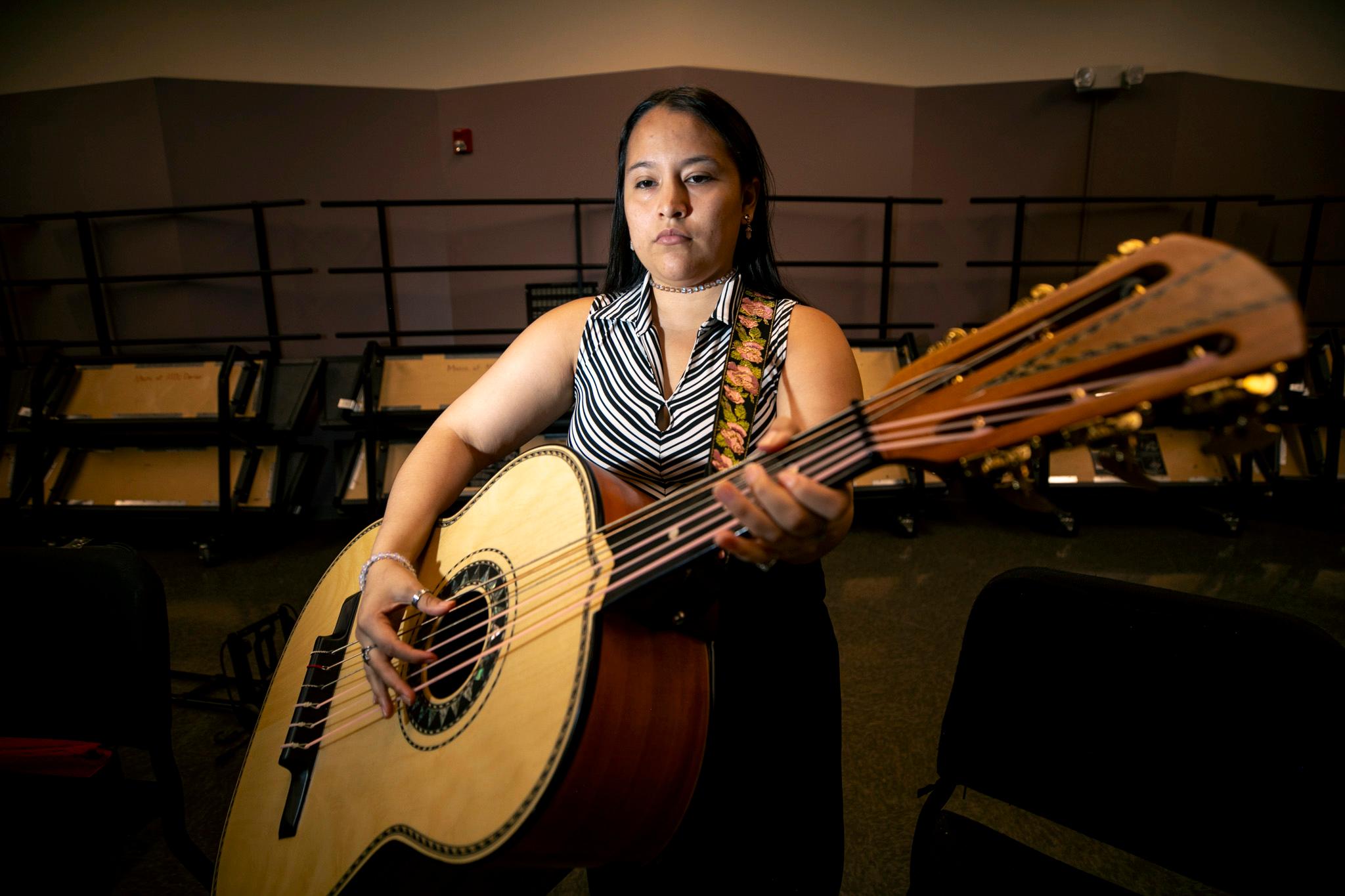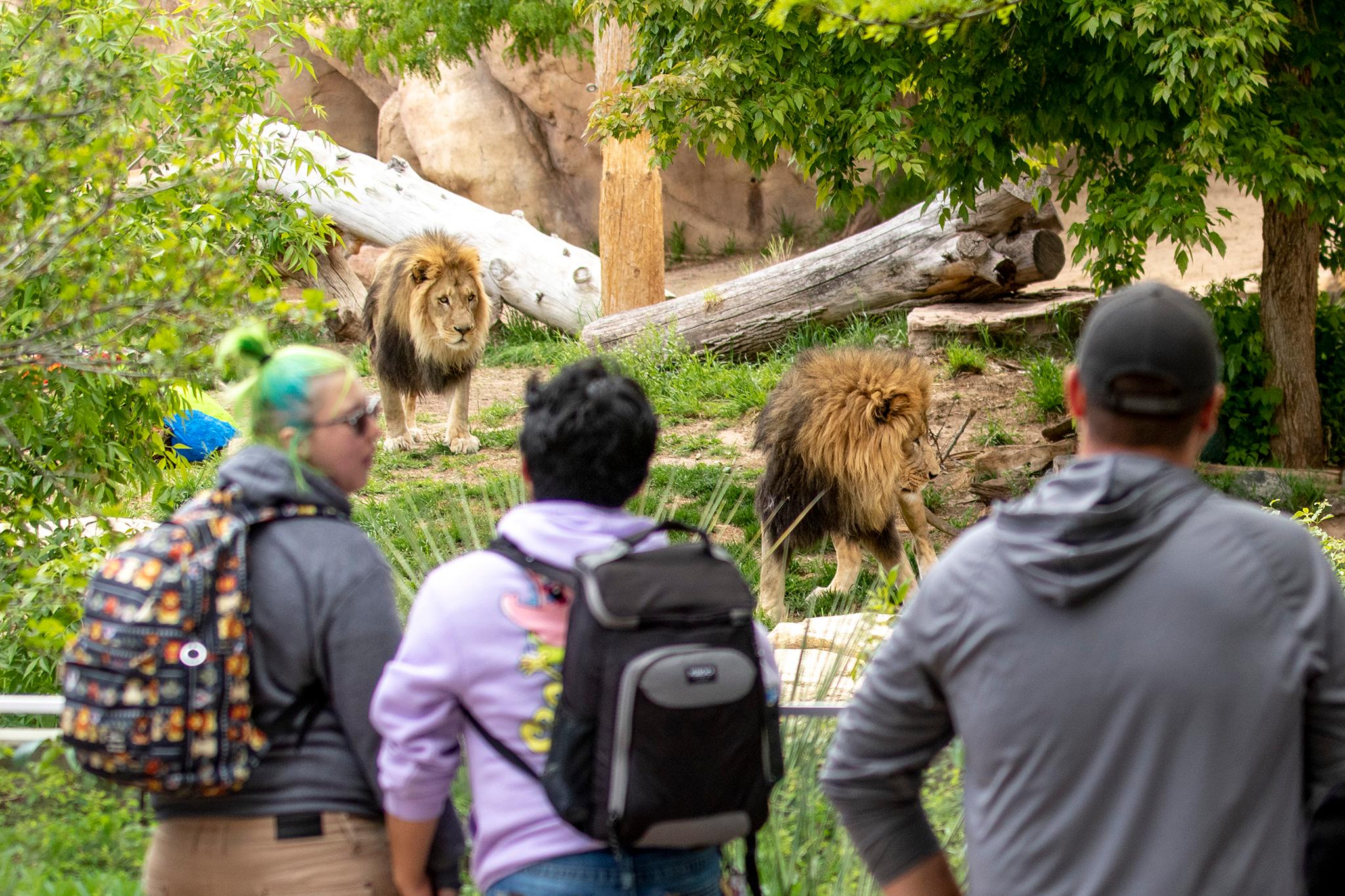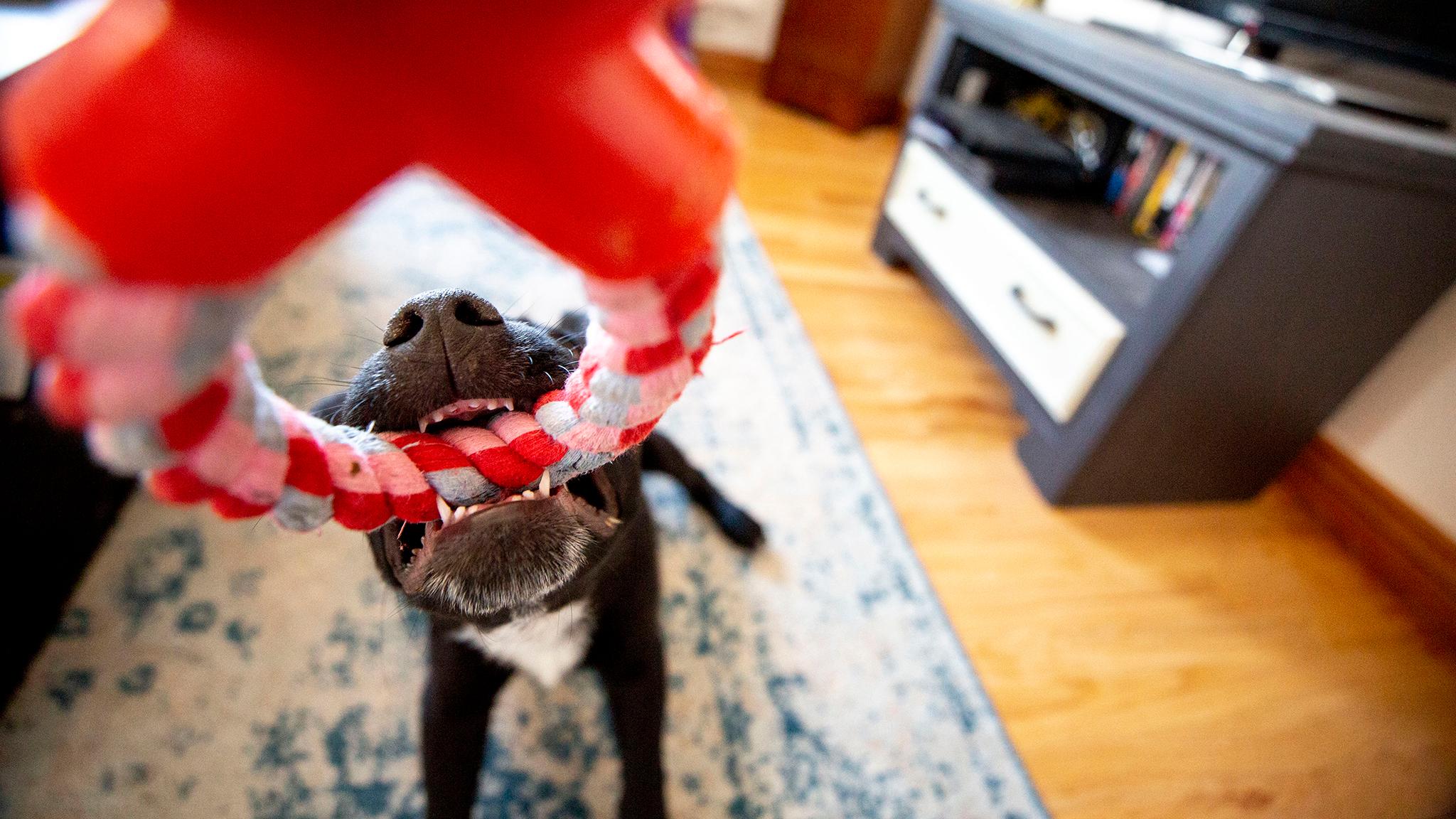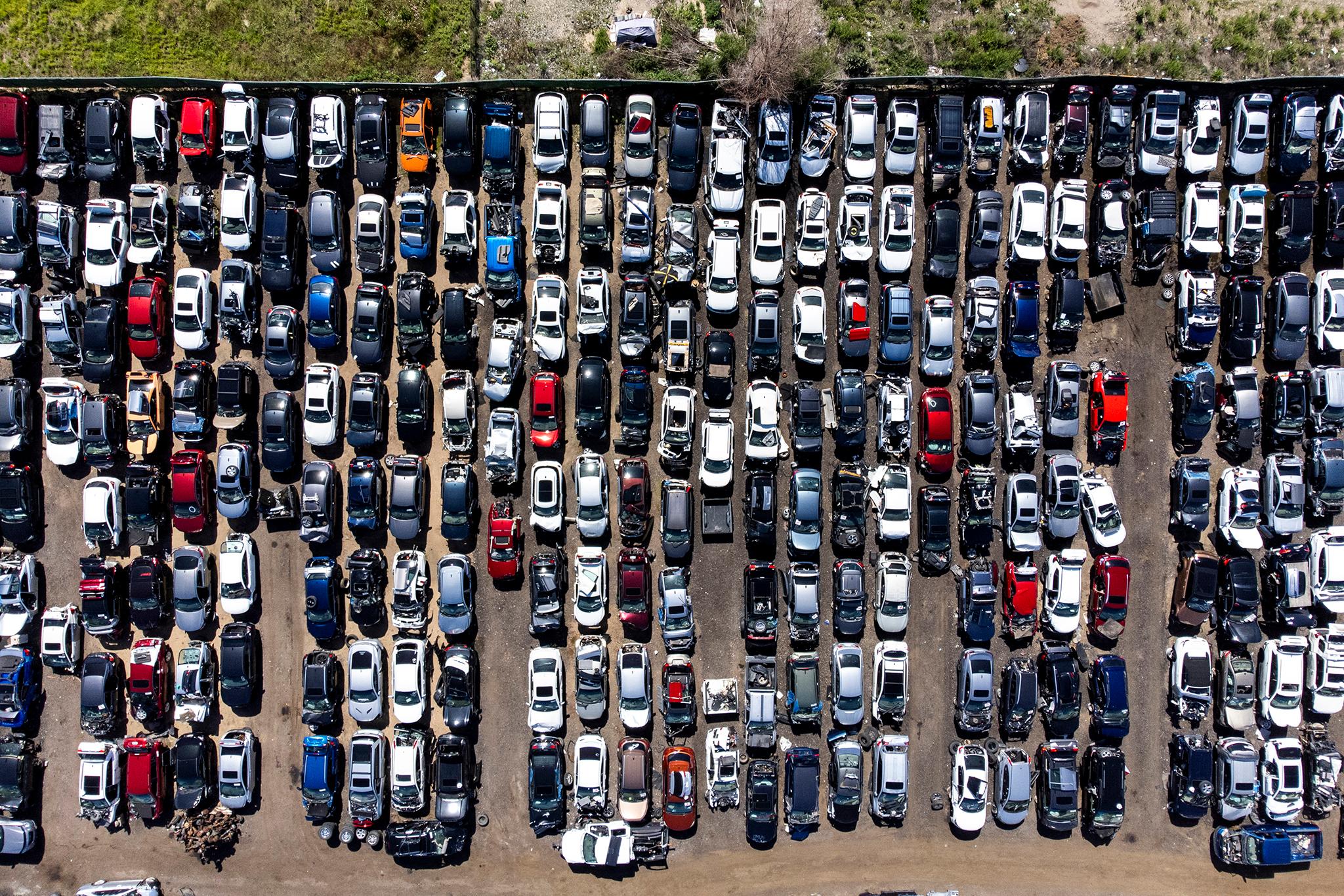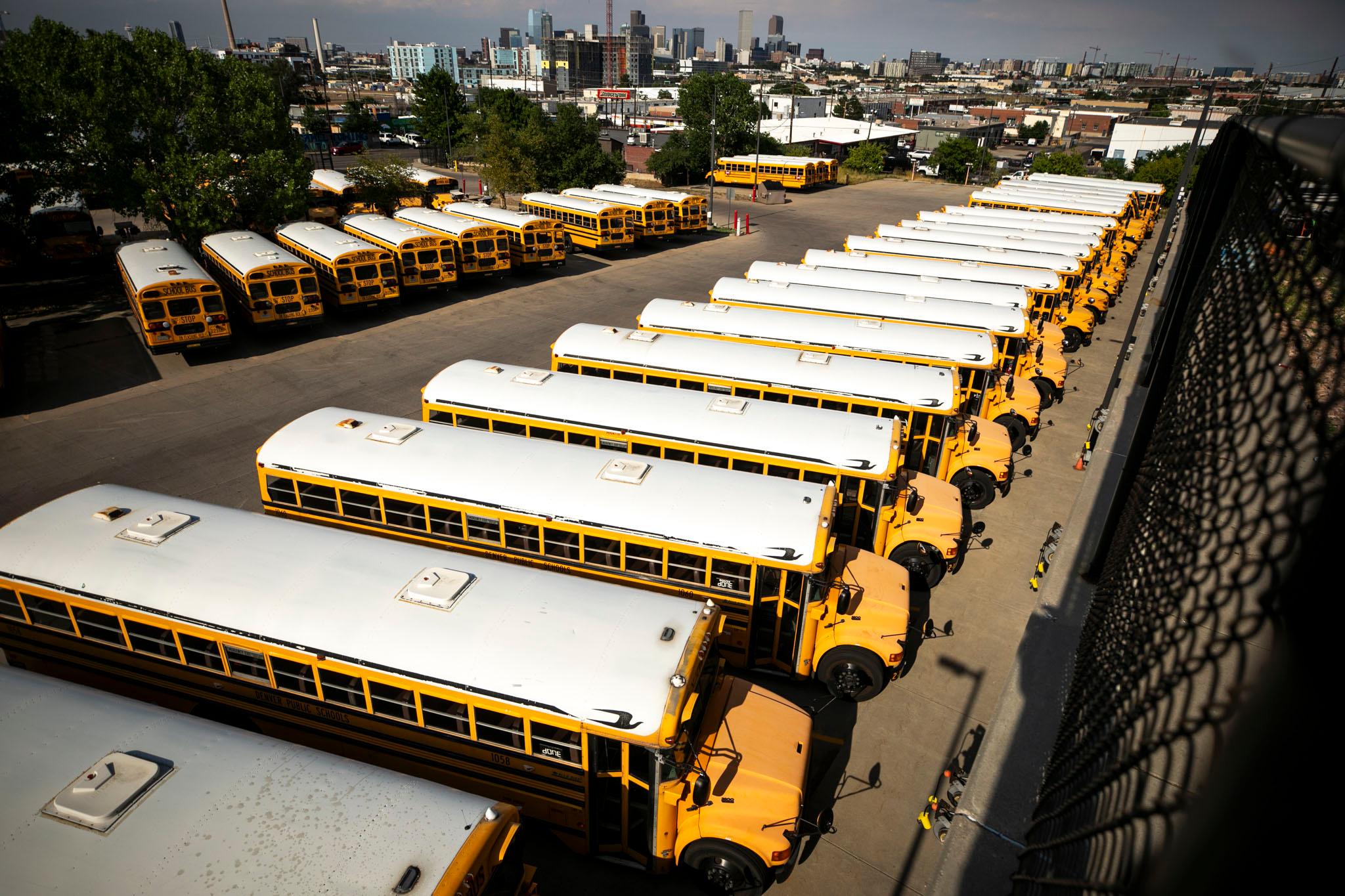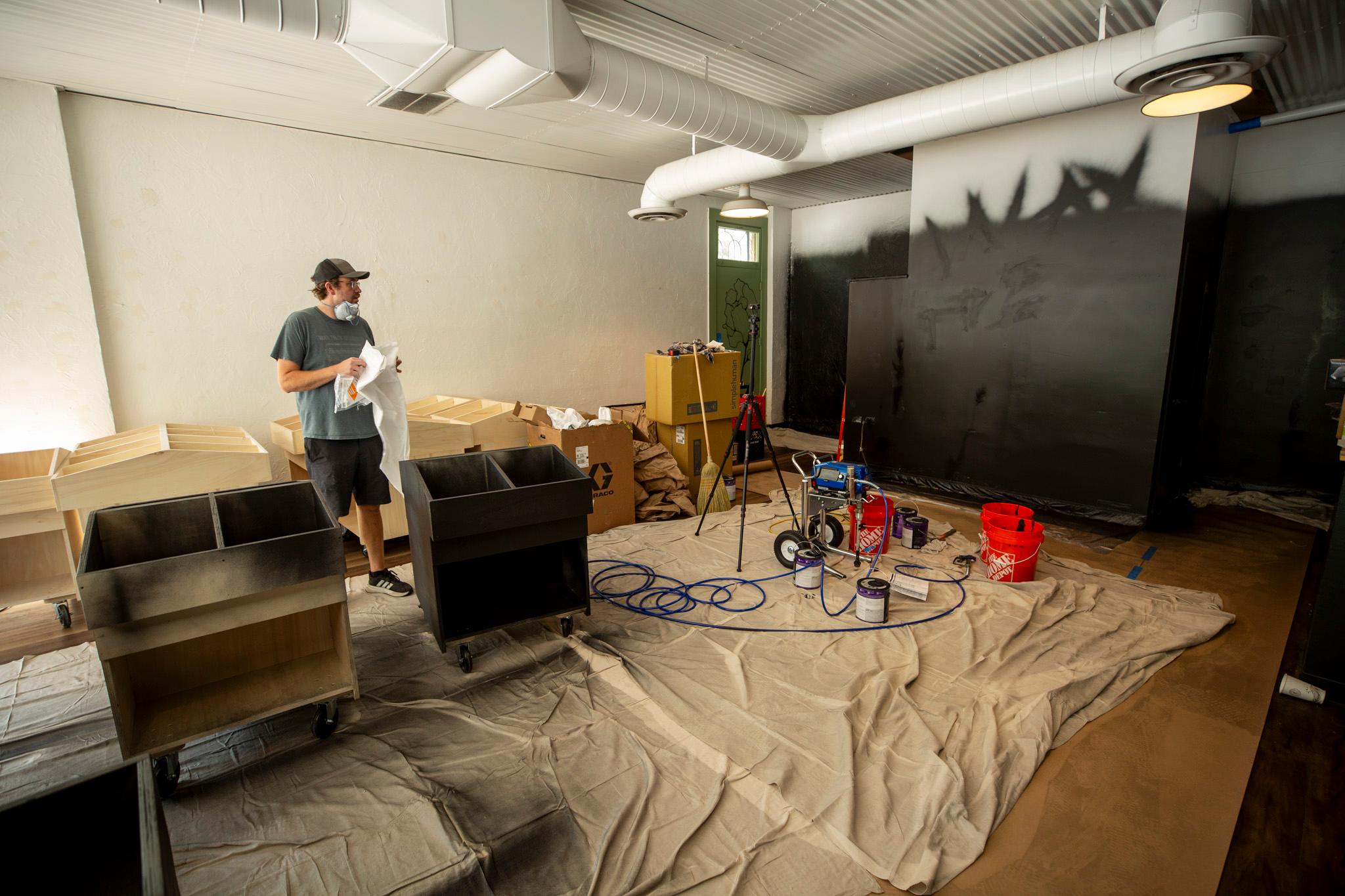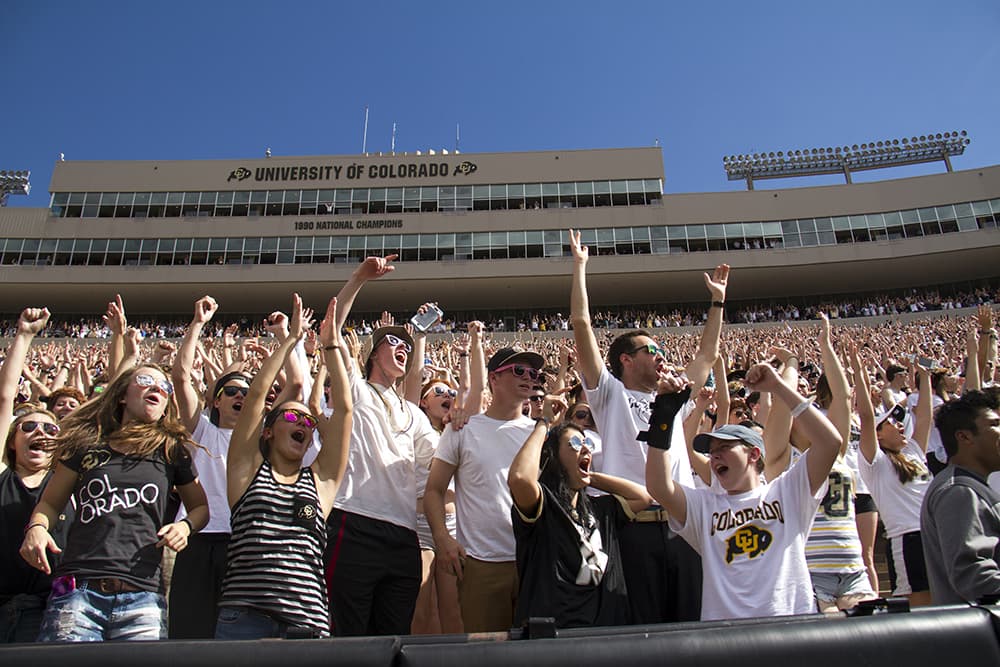The Denver Public Library poked a hornet’s nest when librarians moved artifacts from a display area in the Blair-Caldwell African American Research Library. That was the message from a crowd of disgruntled residents who gathered there for a chat with library management on Wednesday. The gathering was led by former Mayor Wellington Webb.
“You cannot disrespect our community by moving our stuff without telling us,” Webb told the crowd. “We’re going to stand up for ourselves.”
The “stuff” was records and heirlooms stored in a few dozen glass cases, provided by local families and organizations to represent longtime community in a library meant to recognize them. Librarians thought they were protecting the items from exposure, and didn’t expect blowback.
“We haven’t communicated,” interim Denver City Librarian Theresa Liguori told the crowd. “We did not do that. I will take full responsibility for that. That’s on us. We hear you loud and clear.”
But Webb walked a line, calling for accountability for the library — while also urging the crowd to support new funding for the Welton Street branch. Liguori said staff is working to restore the cases to Blair-Caldwell’s second floor, and could be done by June 1.
The artifacts were personal, in the most literal way.
The library opened in 2003, during Mayor Webb’s last year in office. He and former state representative Wilma Webb, his wife, were instrumental in the library’s opening.
Alongside them was Charleszine "Terry" Nelson, the library’s first archivist who spent two decades in her role. She presided over a dense archive of publications, photographs, images and personal items that spoke to Five Points’ importance to Denver and the nation as a whole.
It’s nationally recognized as one of very few libraries of its kind that focus on Black history.
Early on, organizations and families paid to install tall wooden display cases, to fill the building’s second floor. It was a monument to the personal history that underpinned everything this building represented.
“We were so proud to unveil it,” said Claudette Sweet, who helped put one display together for the National Council of Negro Women. "I had the privilege of putting that case together."
The group paid $3,000 for the case. It contained important things, like letters from presidents and governors. There were also awards, photographs, and cookbooks, Sweet said.
But there were few records about whom each case belonged to. Nelson, the former archivist, said she had that information committed to memory, but she needed help to properly catalog everything. The collection grew in an informal way; nobody signed paperwork saying who the items belonged to, or whether they were expecting them back.
“I had it all in my mind. And I did not have any help. I've asked for help,” she said after Wednesday’s meeting. “I asked and asked, but nobody responded.”
Then, a few years ago, the artifacts were moved.
A major renovation closed Blair Caldwell in 2022, around the time Nelson retired. The work was financed by a bond approved by voters 2017, and it specifically targeted the library’s first floor and its HVAC unit.
Nelson said fixes were necessary and predictably overdue.
“There are leaks everywhere,” she said.
Rachel Vagts, the library system’s director of special collections and archives, said it was during that year-long closure that library staff, including Nelson’s replacement, the new archivist, moved the display cases.
“We had taken things out of the cases for safekeeping during the construction process,” she said. “Construction is always the time when things are under the most threat. Not through anybody's bad intention, it's just — that's when things happen.”
So the items were boxed and stored with the rest of the archives. In the process, Vagts said, librarians discovered some artifacts were damaged.
“The best example I have is the Tuskegee Airman sign, which had about 20 signatures on it. You can only actually read one anymore, and that's just from 17 years of it being under direct sunlight,” she said. “So at that point, we decided that we really needed to do some assessment of the condition.”
Vagts said librarians didn’t realize these were personal objects. By storing things away, and cataloguing them, they thought they were acting on a “responsibility to care for the things that people trust us with.”
Some community members felt differently.
After the library reopened in 2023, librarians began using the old wooden cases for other exhibits, like one with art by local students. Vagts said they brought out some of the original artifacts on rotation and hung some photos in new places.
Then, a week ago, Khadija Haynes took some visitors to the second floor to show them the displays. Her guests were a visiting delegation from a national community development group. She was expecting the old layout.
“I had a group of a hundred people from across the country last weekend and took them up there — and there was nothing in there!” she said.
She declined to specifically describe her horror.
“I can't be quoted on that. No, really, because there are no nice words.”
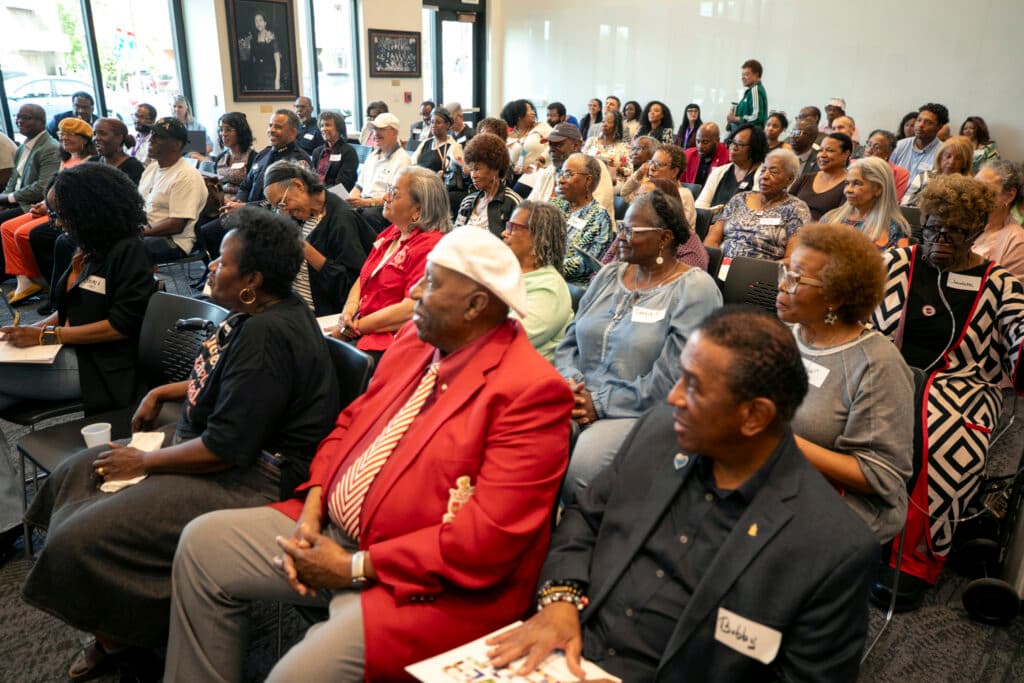
Webb called the meeting not long after.
A few dozen filled the room on Wednesday, voicing fury like Haynes’ as Liguori made apologies on behalf of the whole system.
“We are stewards every day with what we’ve been entrusted with, and we have lost the trust of this community,” she said.
Tamara Rhone said that was true for her. She would not sign any new agreement with the library over her family’s things — meant to clarify who owns the lot and usage expectations — until she got some answers.
“I have a lack of trust until I have a meeting with them and I see that everything is intact,” she said.
Webb channeled that anger, but directed it toward supporting the library.
Though he began by criticizing the library system, the former mayor ended with a plea to his old constituents and friends: He told them to vote for Mayor Mike Jonston’s upcoming bond initiative, which would open the door to $800 million in debt to cover a wide variety of city projects, potentially including more updates to this library.
“They need more help,” Webb said. “The library needs about $7.5 million more to do an expansion upstairs.”
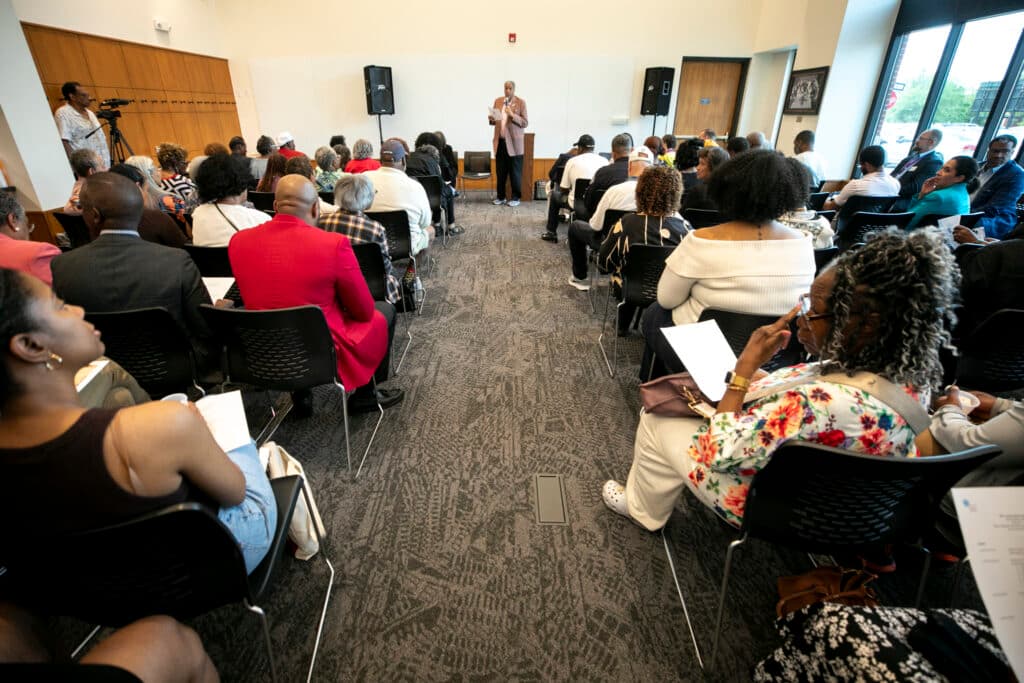
Vagts said that number was more recently upgraded to $12 million, and would cover both the building’s second and third floors.
Webb, who left before we could talk to him, may have been trying to counter a deeper skepticism about government and big spending after a decade of consistent tax hike approvals. (He used the moment to pitch community members on a new plan for the old Park Hill Golf Course, saying they must stay engaged as the city turns it into a park.)
“He doesn’t represent us,” someone grumbled when an elected official stood to speak at the meeting.
“People invade this neighborhood and don’t know the first thing about it,” someone shouted at one point.
Khadija Haynes said she’d long given up on local officials to help.
“We're tired of being mad at the city,” she said, “It’s wasted. It really is. That's like asking for a Snickers bar in the grocery store with your mother. That's a wasted thing.”
Liguori and Vagts said Blair-Caldwell staff will continue to catalogue the materials as they restore the displays, documenting who owns each item and how they want things represented so future librarians don’t make similar mistakes. They’re working to have the cases and their treasures back in place in the next few weeks.
Editor's note: This story has been corrected to reflect that the case Claudette Sweet helped build was owned by the National Council of Negro Women, not her family.

